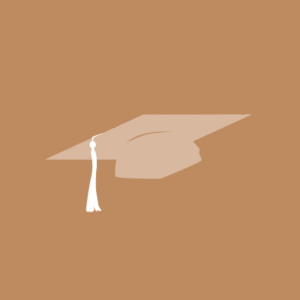JerseyCAN is spotlighting our Teacher Fellows to show how #NJStrong they are with their resilient and creative support for students during this challenging time.
Read more about JerseyCAN’s Teacher Leader Policy Fellowship here.
Christine is in her tenth year of teaching and in a year unlike any other, she realized very quickly that she was going to have to get creative. Similar to many schools in the state, her vocational- technical high school adopted a hybrid instructional model with two cohorts of students meeting Mondays, Tuesdays, Thursdays, and Fridays. The middle of the week, or as her school calls it “Wellness Wednesday,” has been dedicated to collaboration time for teachers, virtual catch-up sessions with students, and/or anything else that supports the school community’s well-being.
“Our school provides students access to CTE courses like cosmetology, culinary, welding, and other hands-on trades that are difficult to learn virtually. I teach English, which is certainly more conducive to learning in a hybrid model, as compared to some of our CTE programs. Although the beginning of this school year was filled with anxiety for many teachers due to all of the unknowns about the pandemic and a new teaching model, I think my students and I have been doing pretty well.”
Although she feels confident in her own students’ abilities to navigate the digital world, she knows it hasn’t been easy for everyone.
“The positive things are still positive, but this situation just magnified issues that already existed— like the digital divide. I feel for my daughter’s second grade teacher and anyone else teaching younger students, since elementary age learners seem to be more challenged by technology and distance from their physical classrooms. The level of engagement for all students varies based on several factors.”
Fatigue is one of them. Although students might have access to the hardware they need to complete schoolwork, she knows that being on a computer for long periods can take a mental toll. That’s why she took a good hard look at the work she was giving students at the beginning of the school year and adjusted it according to what her students were telling her as well as the quality of their work.
“I initially thought I would live stream my lessons, have breakout sessions, and jigsaw readings, but to be honest, it just didn’t work. I had a serious mind-shift and started realizing I needed to incorporate more real-world, authentic tasks.”
Instead of trying to recreate the English lessons she conducted in person, Christine started finding ways for students to create projects and activities in the digital world. For example, there was an opportunity to participate in a personal narrative contest for the New York Times where many of her students experienced the revision process in real-time, incorporating feedback from others and being critical of small details before actually finalizing a published piece. She also brainstormed how to apply themes within required high school literature to real-world scenarios.
“I keep asking myself, how do I make Macbeth’s themes about power and greed connected to what’s going on around us? Not only that but, I have to think what instructional opportunities am I giving my students to problem solve and use higher order thinking: skills that are NOT- GOOGLABLE!”
Students’ access to information is infinite in the digital environment, but what Christine is most concerned about is how they evaluate and apply that information. She recognizes that an authentic assessment these days involves creating tasks that require students to use search engines and create real-world work products that can be shared with diverse audiences. We Raise NJ is excited to see the products that her students create and thankful for her #innovation and #motivation this school year!


